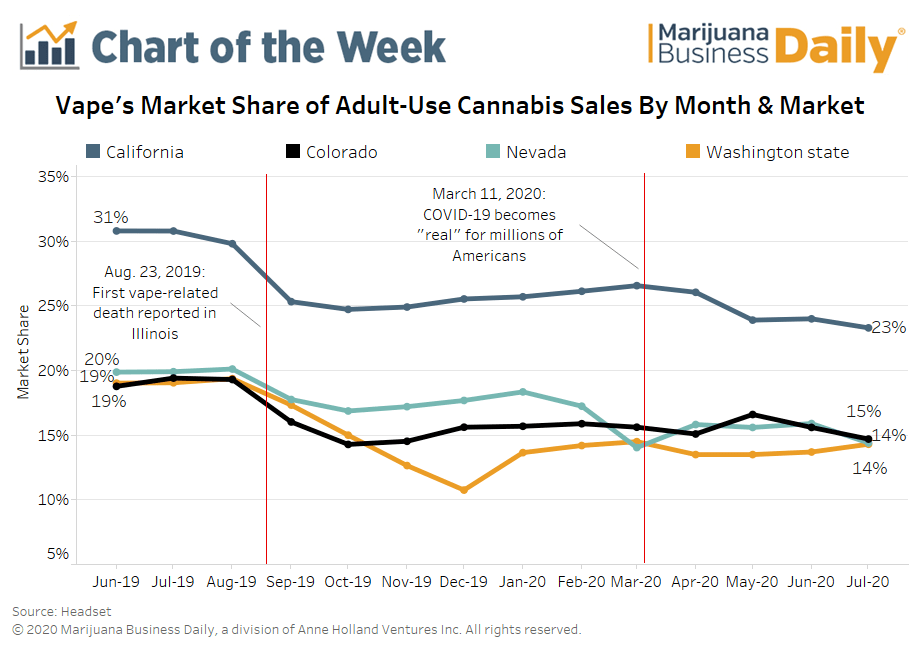Washington state regulators are believed to be among the first in the nation to take a closer look at an issue that has bedeviled cannabis growers and sparked costly lawsuits targeting the marijuana industry: odor emanating from growers and processors.
The state is forming a Marijuana Odor Task Force and seeking an outside expert to advise regulators on the possible impact of cannabis odors on human health.
Mainstream agricultural businesses, including livestock and poultry producers, have long dealt with public complaints over odor.
The odor task force’s creation comes at a time when Washington cannabis businesses already are chafing under heavy regulations. And many are unlikely to welcome more.
For instance, Racketeer Influenced and Corrupt Organization (RICO) Act lawsuits have been filed across the country, including in Colorado, California, Massachusetts and Oregon, with plaintiffs alleging that cannabis odor from nearby farms devalues property and harms the owners’ ability to enjoy their land.
“There are certainly grows that are being very unprofessional and not taking care of their odor,” Wagenseller said.
But, she added, the industry has enemies, contending that some people are using smells from cannabis farms to tie up companies in costly lawsuits.
It remains to be seen if regulators in other states will take up a plan similar to Washington state’s, but Wagenseller would like to see the commissions make decisions based on science and not “reefer madness backlash.”
Task force on hold
According to a release from the state’s Liquor and Cannabis Board (LCB), the request for proposals (RFP) for the project titled Marijuana Odors and Emissions Detection and Research Services went out Aug. 10.
When Senate Bill 6168 went into effect April 3, 2020, it required the task force to be convened with the goal of studying the effects of marijuana odors and emissions.
The state wants a vendor that can detect and report on odors from licensed cannabis companies and then determine whether the emissions are potentially harmful to people who live, work or are located near marijuana producers or processors.
According to LCB spokesman Brian Smith, regulators received four bids, and the lowest was more than double the state’s budget allotment.
The LCB’s plan is to hold off on choosing a vendor for now. Instead, regulators will wait until a separate social equity task force is organized, and then seek its input in choosing an odor expert.
Regulated to death
Cannabis is already one of the most heavily regulated industries in the country, and Washington state’s producers are contending with relatively low wholesale cannabis prices.
“People are really laboring under the weight of regulation and the fees and taxes that go along with that regulation,” said Caitlein Ryan, interim director of The Cannabis Alliance in Seattle.
She added that any additional costs associated with odor mitigation would be “not sustainable for the industry.”
Alex Cooley, co-founder of Seattle cannabis cultivator Solstice, pointed out that his business is already regulated by local authorities regarding smells coming from his indoor grow.
If he could recommend anything to the LCB – other than his belief the task force is unnecessary – Cooley said he would like to make sure odors are studied with a scientific measurement similar to how livestock farms are assessed.
“That would be the only way to actually do it in a real fashion that’s measurable and objective,” he said.
Sensible regulation
It’s not that the industry is against controlling its odors.
Ryan said stakeholders want to “dig into the issue” and find a solution to control odors and help the industry improve its relationship with surrounding communities.
“Obviously, we don’t want to have a negative impact on our community,” she added.
Cooley concurred with that point.
“It’s more cost of compliance that I don’t really want to divert resources to,” Cooley said. “But I also want to be a good neighbor.”
Bart Schaneman can be reached at barts@mjbizdaily.com






